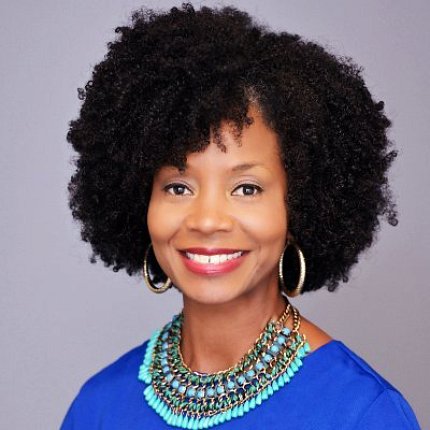Boone Takes Helm as Director of OER Division

As a sophomore at Talladega College in Alabama in the 1990s, Ericka Boone was chosen by her biology professor to attend a summer research program at NIH. Little did she realize then that her exposure to the possibilities of science at NIH would influence the trajectory of her career.
Boone went on to earn a Ph.D. in neuroscience from Penn State University and completed postdoctoral research at Emory University and as an early-career investigator at the University of Illinois, before landing a science policy job at the National Institute on Drug Abuse in 2008.
Her experience as a Ph.D. student, postdoctoral researcher, early-stage investigator and health science policy analyst will stand her in good stead in her new job.
On June 6, Boone was appointed director of the Division of Biomedical Research Workforce (DBRW) in the Office of Extramural Research, where she will shape the future of research training for employees in the biomedical science community.
“I’ve lived some of these experiences,” said Boone, who more recently, served as the director of the Division of Loan Repayment within DBRW. “I’ve lived through being an early-career investigator. I’ve lived through being a graduate student and a postdoc. You have a different understanding than what others may bring to the table.
“I also think that, personally speaking, being a middle child is very important as well, because your whole life you spend community building,” she said with a smile. The Virginia Beach native grew up in a big family (four sisters and a brother) to a Navy officer dad and a Department of Transportation contractor mom.
Early exposure to science as a career, access to effective mentors and research training opportunities, equity in funding, lowering of barriers encountered during career transition periods, relief for high levels of student loan debt and more are among some of the most pressing needs of the biomedical research workforce, especially so for people like her—investigators from backgrounds that are underrepresented in the biomedical sciences, she said.
“I want to pound the table on their behalf when they are not in the room,” Boone said, quoting Wall Street powerhouse Carla Harris. “When they are moving from one career stage to another, I want to ensure they have appropriate NIH resources and support to ensure that they don’t get to the edge of the cliff and fall off.
“To do that,” she continued, “I want to make sure we are focusing on developing programs and policies that address vulnerable career stages, like transitions for early-career investigations. We need to address our funding disparities. We say that diversification of the biomedical research workforce is important to us and now we have to make sure we are actualizing that.”
Boone is active on the conference circuit with an inspiring, popular talk that urges people to shed their fears and live their authentic real self, personally and professionally. She cites the example of professional basketball player Shaquille O’Neal.
“He is like 10,000 feet tall and he cannot shoot a free throw to save his life, but he is one of the greatest athletes that ever lived,” she tells her audience. “He did not let that 1-point free throw hold him back and don’t let it hold you back either.”
In her new role, Boone wants to motivate early-career investigators to overcome career development obstacles.
Outside of work, Boone runs a jewelry business, travels, loves attending jazz, R&B and gospel concerts and dotes on her son Evan, a pre-vet student at Clemson University.
